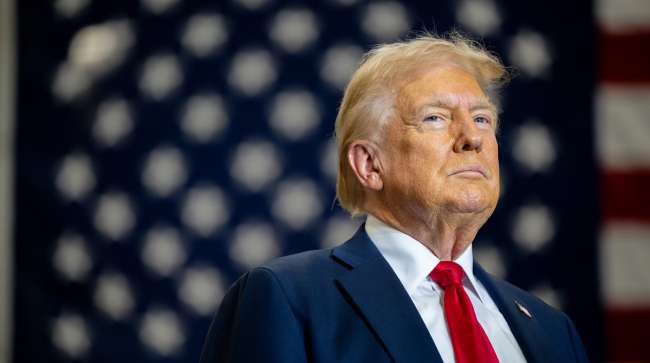Trump Faces Setback as House Nixes Spending Plan

[Stay on top of transportation news: Get TTNews in your inbox.]
The Republican-led House rejected a temporary funding plan backed by President-elect Donald Trump on Dec. 19 with just over 24 hours to go before a US government shutdown, capping an extraordinary two days in Washington that tested the limits of the incoming president’s power.
Trump and key adviser Elon Musk had pressured GOP lawmakers, including threats to oppose them in the next election, to abandon an earlier bipartisan deal. Trump insisted Republican leaders add a provision waiving or raising the federal debt limit before he takes office.
But the bill failed by a vote of 235 to 174, with 38 Republicans voting against it in defiance of both the president-elect and the richest man in the world. Nearly all Democrats voted against the spending package, which would have also suspended the debt ceiling for two years.
After the vote, Musk took to his social media platform X to blame Democrats for the defeat of a “super fair & simple bill.”
House Democratic leader Hakeem Jeffries had dismissed the plan as “laughable,” adding “extreme MAGA Republicans are driving us to a government shutdown.” White House Press Secretary Karine Jean-Pierre likened it to a “giveaway for billionaires.”
A super fair & simple bill was put to a vote and only 2 Democrats in Congress were in favor.
Therefore, responsibility for the shutdown rests squarely on the shoulders of @RepJeffries. https://t.co/TKq65oKLs4 — Elon Musk (@elonmusk) December 20, 2024
Government funding will lapse Dec. 20 without congressional action. The Trump-backed plan would set March 14 as the new funding deadline.
House Appropriations Committee Chairman Tom Cole said he was mystified why lawmakers would vote against a bill that “extends important protections to the American people.”
But another Republican lawmaker denounced the plan before the vote, taking issue with the extension of the debt ceiling.
“To congratulate yourself because it’s shorter in pages but increases the debt by $5 trillion is asinine,” Representative Chip Roy, a hardline conservative from Texas, said on the House floor. “And that is precisely what Republicans are doing.”
House Speaker Mike Johnson huddled with other Republicans in his office much of Wednesday evening and during the day Thursday trying to work out a temporary funding plan that Trump would accept, as they closed in on the shutdown deadline.

Both funding the government and Johnson’s speakership hang in the balance. (Al Drago/Bloomberg News)
Musk had savaged Johnson’s earlier deal in a daylong series of social media posts Dec. 18, rousing his followers against the bill and declaring that any lawmaker who supported it should be defeated in the next election.
The spending vote this week had been expected to be relatively free of drama, as neither the incoming unified Republican majority nor the Democrats currently in control of the Senate and White House wanted a showdown as the holidays loomed. But the bill included more than $100 billion in disaster aid and had other sweeteners, such as a pay raise for lawmakers, drawing the ire of Musk, who Trump has named to lead a newly created Department of Government Efficiency to bring major expenditure cuts.
The debt ceiling had been an issue legislators didn’t expect to have to confront until next year, and certainly wasn’t on their pre-holiday agenda. On Dec. 19, Trump told NBC News that abolishing the debt ceiling entirely would be the “smartest thing” lawmakers could do.
“I support that entirely,” he said.
Billy House, Emily Birnbaum and Steven T. Dennis contributed to this report.
Want more news? Listen to today's daily briefing below or go here for more info:




